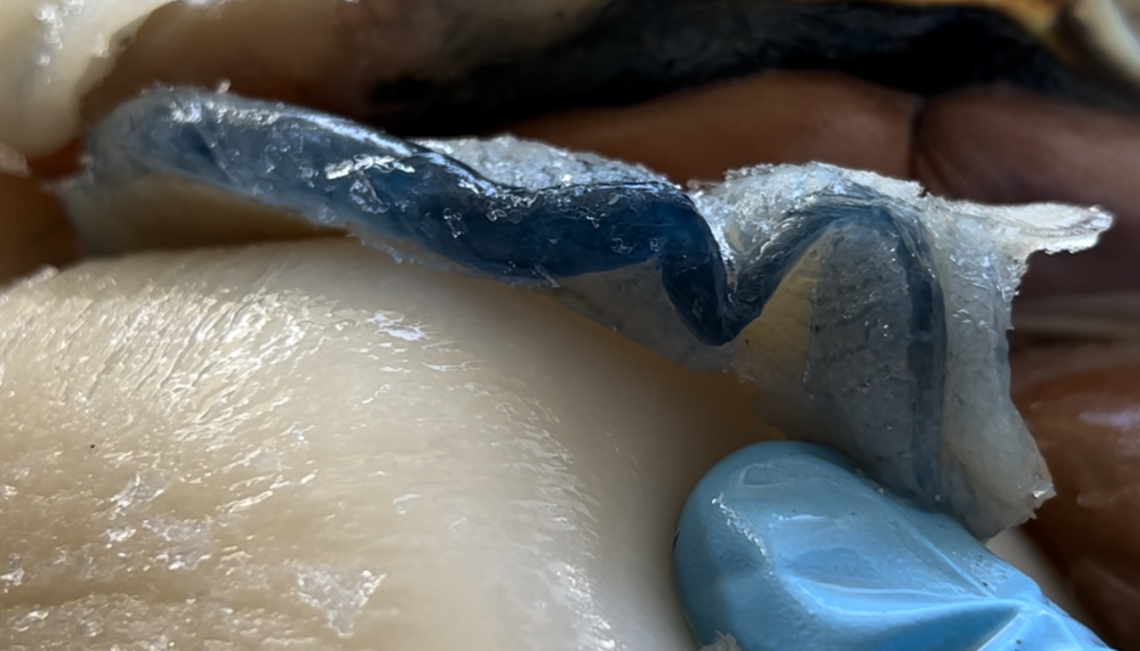Rare and unusual sea creatures have been unveiled during an annual squid survey

Earlier this month, NIWA welcomed the Auckland University of Technology ‘Squid Squad’ – a team of scientists from the Lab for Cephalopod Ecology and Systematics – to unbox and categorise cephalopod species taken from voyages around the country.
This year’s finds include a rarely collected scaled squid and spectacular hooked squids.
Professor Kat Bolstad from Auckland University of Technology led the survey. She says that each specimen is important in helping us preserve the deep ocean.
“For every animal we collect, we gain more knowledge on their biology, ecology, and habitat. We still have plenty of undescribed species and we know very little about the biology of many our deep-sea squids. We’re working to make sure each species can be reliably identified and has a name that accurately represents how it’s related to the others."
“From there, we can investigate individual species’ roles within their ecosystems, and where and when we might expect to encounter these animals. If we can clarify our local cephalopod biodiversity and its role within Southern Ocean ecosystems, we can protect them,” said Professor Bolstad. The waters around Aotearoa New Zealand host an extraordinary diversity of cephalopod species, with NIWA collecting and receiving many priceless specimens.
This year, the team unearthed spectacular large hooked squids, weighing about 15kg and sitting at 2m long, a Taningia—which has the largest known light organs in the animal kingdom—and a few species that remain very rare in collections worldwide, such as the ‘scaled’ squid Lepidoteuthis and the Batoteuthis skolops.
These specimens will be stored and preserved in the NIWA Invertebrate Collection for future study.
Collection Manager of the NIWA Invertebrate Collection Sadie Mills says she loves hosting the ALCES team.
“We affectionately call this event ‘Squid Christmas’ because it’s so exciting opening the boxes and seeing what treasures we’ve got. The enthusiasm from everyone is infectious. As the frozen cephalopods defrost and unfold, the team eagerly examine them to begin identifying and sampling."
“Some, like the light-organ-studded ‘jeweled squids’ and ‘warty hooked’ squids’, can be confirmed right away. Others must be thoroughly examined and may remain a ‘mystery squid’ pending more detailed investigations. Best still, we get to improve the scientific value of our collection with these new discoveries,” said Sadie. This year’s team included ALCES co-leader Dr Heather Braid, and PhD students Ryan Howard, Marina Maranzana, and Samuel Clough. Dr Thom Linley from The Museum of New Zealand Te Papa Tongarewa was also on hand to assist with outreach and record for the Deep-Sea Podcast.

